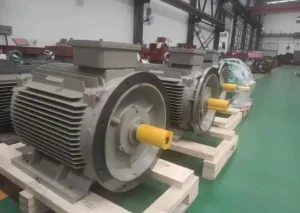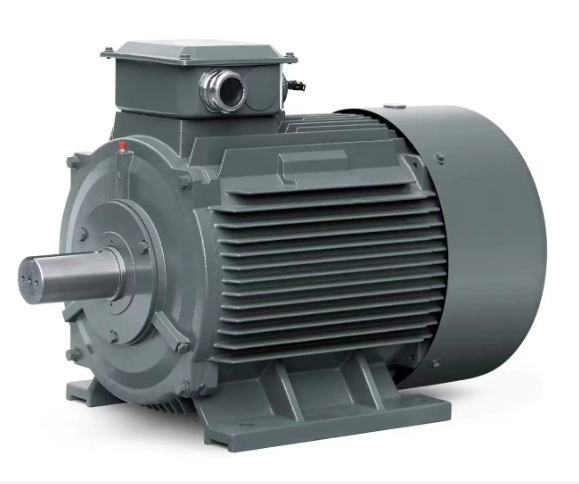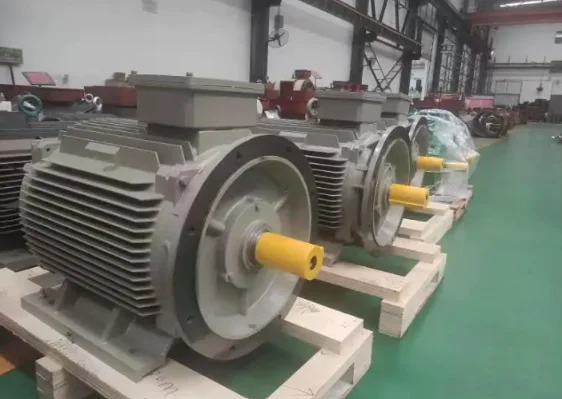
Selecting the right motor for your air compressor is not just a technical decision. It directly affects your energy bills, maintenance schedules, and even workplace comfort. Many factories and workshops have learned this the hard way when their compressors failed or consumed far more power than expected. The global demand for efficient and reliable solutions keeps rising, pushing buyers to look closely at how motors match compressor needs.
Why Is Motor Selection Critical for Compressors?
When you choose a compressor, the motor is often treated as just one component. In reality, it is the driving heart of the machine. A poor motor match can lead to wasted power, frequent breakdowns, and higher costs.
How Does Energy Efficiency Impact Costs?
Compressors often run for long hours every day. Even a small drop in efficiency quickly adds up in electricity bills. Traditional induction motors lose more energy at partial load, while permanent magnet types maintain higher efficiency across a wider range. For facilities running multiple compressors, switching to efficient motors can save thousands of dollars each year.
Why Do Maintenance Needs Matter?
Many compressors still rely on belt-driven asynchronous motors. These belts wear out quickly, causing downtime. Bearings and windings in older motors also fail more often under heavy loads. Choosing a direct-drive, low-maintenance motor reduces repair time and lowers spare parts costs.
Can Noise Affect Work Environments?
Noise is not just a comfort issue—it impacts worker safety and concentration. Compressors already generate significant background noise. Motors with better design, such as low-vibration permanent magnet motors, help keep workplaces quieter and more productive.
What Motor Types Are Common in Compressors?
The most used categories are induction motors and permanent magnet motors. Each has its advantages and trade-offs.
| Motor Type | Pros | Cons |
| Induction Motor | Simple design, lower upfront cost | Less efficient at partial loads, higher maintenance |
| Permanent Magnet Motor | Higher efficiency, compact size, less heat, quieter | Higher initial price but lower lifetime cost |
The shift in recent years shows a strong move toward permanent magnet motors, especially in compressors where reliability and energy savings are priorities.
How Do Load and Application Conditions Affect Motor Choice?
What Role Does Load Profile Play?
If your compressor runs at full load most of the time, an induction motor might look sufficient. But in reality, many compressors operate under variable loads. In such cases, a permanent magnet motor adjusts better, keeping efficiency high across different conditions.
How Important Is Starting Performance?
Compressors often face high starting torque. Motors with poor starting capability may cause large current spikes, stressing the power grid and other equipment. Permanent magnet designs offer smoother and lower-current starts, reducing shock on systems.
Does Environment Make a Difference?
Yes. Harsh environments with dust, high heat, or humidity demand motors with stronger protection and insulation. In some cases, motors designed with improved cooling systems extend service life and reduce the risk of failures.
Why Are Permanent Magnet Motors Becoming Preferred?
Permanent magnet motors are increasingly chosen because they combine several critical advantages: they save energy, take up less space, weigh less, deliver higher reliability, and often require little to no maintenance. These features make them especially suitable for modern compressor systems where efficiency and uptime are essential.
Energy Savings
Unlike traditional induction motors, permanent magnet motors keep high efficiency even when running at partial loads. For example, if a compressor only requires half its capacity, conventional motors lose more energy, while permanent magnet designs continue to operate near peak efficiency.
Compact Size and Light Weight
A permanent magnet motor generally has a smaller footprint and lighter weight compared to an induction motor of equal power. This helps free up workshop space, simplifies transport, and makes installation and service easier.
High Reliability
Because permanent magnet motors eliminate many mechanical parts such as belts, they experience less wear and tear. This translates into longer service intervals, fewer unexpected failures, and greater reliability in continuous operations.
Low Maintenance
With reduced moving parts and cooler operating temperatures, these motors demand less routine maintenance. Users benefit from lower downtime and reduced spare parts costs.
For many buyers, these combined strengths explain why permanent magnet motors are becoming the standard choice for air compressors today

Qingdao Enneng Motor Co., Ltd. develops and manufactures permanent magnet electric motors for a variety of industrial applications, including compressors. The company provides solutions that focus on long-term efficiency, durability, and user-oriented design. Their motor for compressors integrates permanent magnet and variable frequency technology, supporting stable operation while cutting energy consumption.
Enneng’s product center highlights different models designed for both small and large compressor systems. With its engineering expertise, the company assists buyers in choosing the right setup for their unique requirements. For distributors, working with Enneng means access to motors tested for performance and reliability without unnecesary overstatement.
Conclusion
The motor is the most critical part of your compressor system. Choosing the wrong one risks higher power bills, frequent repairs, and shorter equipment life. By focusing on efficiency, torque, load profile, and environmental needs, you can make a smarter decision. Permanent magnet motors, while requiring higher initial investment, usually pay off with energy savings and reliability over time.
If you are exploring better options for your air compressor and motor setup, suppliers like Qingdao Enneng Motor Co., Ltd. provide solutions that combine proven design with practical application benefits.
FAQ
Q1: Why is energy efficiency important in an air compressor and motor?
A: Higher efficiency lowers electricity bills and reduces wasted power, especially during long operating hours.
Q2: What motor type works best for variable load compressors?
A: Permanent magnet motors are ideal since they maintain efficiency across different load conditions.
Q3: How do permanent magnet motors reduce maintenance costs?
A: They remove parts like belts and run cooler, cutting the need for frequent service.
Q4: Can noise levels really be reduced with motor choice?
A: Yes, permanent magnet motors operate with less vibration and smoother rotation, lowering overall noise.
Q5: Where can I find reliable motors for compressors?
A: You can check suppliers such as Qingdao Enneng Motor Co., Ltd. for permanent magnet compressor motors tailored to industrial needs.
